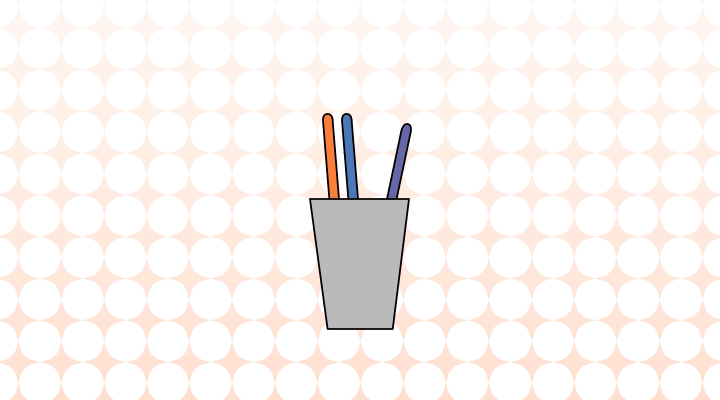Stationary relates to something that is not moving, while stationery pertains to writing materials and supplies.
Stationary and stationery are two words that are often confused due to their similar spellings and pronunciations, but they have completely different meanings and applications in the English language.
What does stationary mean?
Stationary is an adjective that describes something as not moving or fixed in one place. It indicates a lack of motion or change.
Example sentence
- A car at a red traffic light is stationary because it is not in motion. Similarly, a desk or a bookshelf is stationary because it is not designed to move.
More example sentences
- The bicycle was stationary, leaning against the wall of the garage.
- The teacher asked the students to remain stationary in their seats until the bell rang.
- During the meditation session, it's important to keep your body completely stationary.
- The weather balloon hovered stationary in the sky for hours, collecting data.
- The traffic on the highway came to a complete stop, and the cars remained stationary for a while.
- The security guard noticed a suspicious person loitering near the entrance and asked them to stay stationary for questioning.
- The art exhibit featured sculptures that appeared to be in motion, but they were actually stationary.
- The satellite dish needed to be pointed in a stationary position to maintain a strong signal.
- The elderly cat preferred to stay stationary most of the time, resting in its favorite chair.
- The stationary camera captured stunning images of the sunrise over the mountains.
These sentences showcase various contexts in which "stationary" is used to describe something that is not moving or fixed in one place.
What does stationery mean?
Stationery is a noun that refers to materials used for writing, drawing, or correspondence. These materials often include items such as paper, envelopes, pens, pencils, notepads, and other office supplies.
Example sentence
- Stationery is used for various purposes, including writing letters, taking notes, or creating artistic works.
More example sentences
- She bought some elegant stationery to write personalized thank-you notes.
- The office manager ordered a bulk supply of stationery, including pens, paper, and envelopes.
- The stationery store offers a wide variety of stationery items, from plain notepads to fancy letterhead.
- The wedding invitations were printed on high-quality stationery with a beautiful floral design.
- He organized his desk with different compartments for his stationery to keep everything neat and tidy.
- The stationery shop also sells greeting cards for various occasions.
- She loved receiving stationery sets as gifts because she enjoyed writing letters by hand.
- The artist used stationery with textured paper to create unique drawings and sketches.
- The company's branding guidelines include specific colors and fonts for all stationery used in official correspondence.
- I found a vintage stationery set at the antique store, complete with quill pens and sealing wax.
How to remember the difference.
To remember the difference between the two words, you can think of stationery as the 'e' in the word representing envelopes and other writing materials. So, if you need paper or writing supplies, you would request stationery, whereas if you want to describe something that isn't moving, you would use stationary.
Common idioms/phrases
The words "stationary" and "stationery" have distinct meanings, and they are used in different contexts. Here are some idiomatic expressions that involve these words:
Stationary (not moving):
- Dead in the water: This phrase is often used in a business or project context to describe something that has come to a complete stop, much like a stationary object in the water.
- Stuck in a rut: This idiom means being in a situation where there is no progress or change, similar to something stationary. It implies a lack of innovation or development.
- Set in stone: This expression is used when something is unchangeable or fixed, like a stationary object. It implies that a decision or plan is final and cannot be altered.
Stationery (writing materials):
- Put it in writing: This phrase means to document something in a formal way, often in writing, using stationery. It emphasizes the importance of having a written record.
- Pushing paper: This idiom is used to describe office work that involves handling paperwork, such as filling out forms or processing documents, often using stationery supplies.
- Pen-pusher: This term refers to someone whose job primarily involves administrative or clerical work, often related to using stationery for tasks like writing letters or filling out forms.
While these idiomatic expressions use the words "stationary" and "stationery" in different ways, they reflect the meanings and contexts of these words accurately. "Stationary" refers to something not moving, while "stationery" refers to writing materials and office supplies.
In summary, "stationary" means not moving or fixed in place, while "stationery" refers to writing materials and office supplies used for writing and correspondence. Understanding the distinction between these two words is important for clear and accurate communication in written and spoken language.
Discover more about the AI English proofreader, Engram!

Reference














